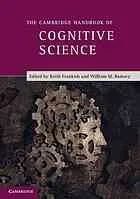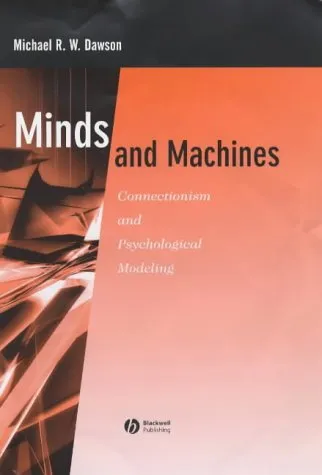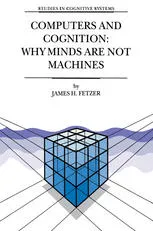The Cambridge Handbook of Cognitive Science
4.5
بر اساس نظر کاربران

شما میتونید سوالاتتون در باره کتاب رو از هوش مصنوعیش بعد از ورود بپرسید
هر دانلود یا پرسش از هوش مصنوعی 2 امتیاز لازم دارد، برای بدست آوردن امتیاز رایگان، به صفحه ی راهنمای امتیازات سر بزنید و یک سری کار ارزشمند انجام بدینکتاب های مرتبط:
معرفی کامل کتاب "The Cambridge Handbook of Cognitive Science"
کتاب "The Cambridge Handbook of Cognitive Science" یکی از منابع برجسته و معتبر در حوزه علم شناختی است که توسط Keith Frankish و William M. Ramsey ویرایش شده است. این کتاب به بررسی جنبههای مختلف علم شناختی میپردازد و شامل مقالات و بخشهایی است که توسط نویسندگان مطرح در این حوزه نوشته شدهاند.
خلاصهای از کتاب
این کتاب به عنوان یک راهنمای جامع در علم شناختی، به معرفی و بررسی موضوعات کلیدی و مفاهیم بنیادین در این رشته میپردازد. از مباحثی همچون همگرایی میان علوم شناختی مختلف، نقش مغز در شناخت، مدلهای محاسباتی، زبان و شناخت، تکامل شناخت، و بسیاری دیگر از موضوعات پرداخته شده است. هر فصل به طور مستقل نوشته شده و شامل تحقیقاتی دقیق و دیدگاههای نوین است که به فهم عمیقتری از موضوعات شناختی کمک میکند.
نکات کلیدی
- کتاب شامل تحلیلهای عمیق در مورد نقش مغز در شکلگیری شناخت است.
- توسعه و بررسی مدلهای محاسباتی و نقش آنها در پردازش اطلاعات شناختی.
- مقایسه و همگرایی میان علوم شناختی گوناگون و تأثیر آن در درک رفتار انسانی.
- پرداختن به نقش زبان در توسعه و ساختار شناخت.
- بررسی تکامل شناخت و تغییرات آن در طول تاریخ انسان.
نقلقولهای معروف از کتاب
از کتاب "The Cambridge Handbook of Cognitive Science" میتوان به جملات تأثیرگذاری اشاره کرد که درک عمیقتری از ماهیت شناخت را ارائه میدهند. این جملات به اهمیت همگرایی علوم شناختی و چالشهای پیش روی این رشته میپردازند.
- یکی از جملات معروف کتاب بر اهمیت تعامل و همگرایی میان علوم مختلف برای دستیابی به درک کاملی از شناخت تأکید دارد.
- نویسندگان برخی از فصول به بررسی چالشهای اخلاقی و فلسفی موجود در تکنولوژیهای محاسباتی و علوم شناختی پرداختهاند.
چرا این کتاب مهم است
کتاب "The Cambridge Handbook of Cognitive Science" به دلیل ارائه دیدگاههای نوین و جامع در زمینه علم شناختی، منبعی ارزشمند برای دانشجویان، محققان و علاقهمندان به این رشته محسوب میشود. این کتاب با گردآوری نظرات و تحقیقات برتر جهانی، به توسعه و گسترش علم شناختی کمک کرده و بستر مناسبی برای بحثهای آکادمیک و پیشرفت در این حوزه فراهم میکند.
Detailed Summary of the Book
"The Cambridge Handbook of Cognitive Science," edited by Keith Frankish and William M. Ramsey, serves as a comprehensive compendium that captures the breadth and depth of cognitive science as a multidisciplinary field. Cognitive Science, as explored in this handbook, is an intersection of psychology, neuroscience, artificial intelligence, philosophy, linguistics, anthropology, and more, providing a holistic view into how humans perceive, understand, and act on information.
The book is structured to facilitate a deep understanding of cognitive science's major themes. Through contributions from leading scholars, it delves into various aspects like representational theories, cognitive architectures, and developments in cognitive neuroscience. Each chapter presents an in-depth examination of fundamental topics, such as perception, memory, decision-making, and language comprehension. Moreover, it also advances discussions on contemporary debates, including the nature of consciousness and the implications of cognitive science for human understanding.
By integrating diverse domains, the book not only elaborates on historical roots and foundational theories but also foregrounds emerging ideas and technologies influencing the field. Readers are guided through a cognitive odyssey that not only informs but also challenges traditional views, urging a rethinking of cognition and artificial intelligence's roles in modern science and society.
Key Takeaways
- Cognitive Science is quintessentially interdisciplinary, drawing from numerous domains to study the mind and intelligent behavior.
- The book highlights both classical theories and cutting-edge research, offering a balanced view of cognitive science's past and future.
- Chapters explore how traditional cognitive models are being reshaped by advancements in AI, leading to a new understanding of intelligence.
- Important debates include the modularity of mind, nature of consciousness, and whether human-like cognition can be synthesized artificially.
- Cognitive Science has practical implications in various fields, including mental health, education, and human-computer interaction.
Famous Quotes from the Book
"Understanding the human mind is crucial not only for unraveling the complexities of mental processes but also for enhancing artificial intelligence."
"Cognitive Science is the ultimate frontier of human inquiry, bridging the gap between natural and artificial intelligence."
Why This Book Matters
"The Cambridge Handbook of Cognitive Science" is indispensable for anyone seeking to grasp the intricacies of mind and intelligence. In an age where technology is rapidly evolving, understanding the conceptual and theoretical underpinnings of cognitive science is more important than ever. This book lays a crucial framework for both students and seasoned researchers to explore how cognition operates while considering these processes alongside technological advancements.
The handbook not only serves as a scholarly resource but also addresses contemporary issues and questions, making it relevant for a diverse readership. It tackles the essential question of what it means to think, providing insights that can spur innovation in technology, healthcare, and education. By shedding light on the interconnectedness of different scientific domains, this book underscores the potential for cognitive science to address some of the most pressing challenges of the 21st century.
دانلود رایگان مستقیم
You Can Download this book after Login
دسترسی به کتابها از طریق پلتفرمهای قانونی و کتابخانههای عمومی نه تنها از حقوق نویسندگان و ناشران حمایت میکند، بلکه به پایداری فرهنگ کتابخوانی نیز کمک میرساند. پیش از دانلود، لحظهای به بررسی این گزینهها فکر کنید.
این کتاب رو در پلتفرم های دیگه ببینید
WorldCat به شما کمک میکنه تا کتاب ها رو در کتابخانه های سراسر دنیا پیدا کنید
امتیازها، نظرات تخصصی و صحبت ها درباره کتاب را در Goodreads ببینید
کتابهای کمیاب یا دست دوم را در AbeBooks پیدا کنید و بخرید




